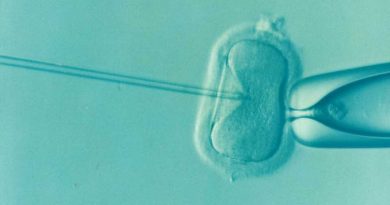The Real Reason Your Metabolism Slows Down

As a teen and young adult, you probably had a good metabolism and didn’t have to worry too much about what you ate. One of the more challenging parts about aging is maintaining a healthy weight, and it gets more complicated as your birthdays pile up. Your metabolism slows down as you age (via Piedmont Healthcare). Perhaps shockingly, your metabolism slows down a whopping 10 percent with each decade you grow older after age 20. Karen Andry, a licensed and registered dietitian with Piedmont Atlanta Hospital, explained, “By the time we’re 50, there’s a 30 percent drop.” This phenomenon means that the older you get, the more difficult it is to lose weight without significant lifestyle changes. “It’s very simple to gain the weight, but it’s very difficult to take it off,” Andry said.
Healthline reported that the real reason your metabolism slows as you age is a combination of several factors involving becoming less active, your body systems aging, and muscle loss. Ultimately, aging itself isn’t the biggest factor in your slowing metabolism. Instead, it’s mostly due to muscle loss (via The Journals of Gerontology), combined with reduced activity levels, which are both things you have some control over. While it all sounds quite bleak, there are several steps you can take to counteract this phenomenon.
Here's how to keep your metabolism going strong as you age

Maintaining muscle mass is the best way you can keep your metabolism working well for you as the years go by (via WebMD). However, once you hit 45, it becomes more difficult to keep the muscle you have and add more. Piedmont Healthcare says the average person loses 1 percent of muscle mass every year thereafter.
What to do? Healthline suggested adding resistance training to one’s fitness routine to both maintain the muscle you already have while hopefully adding to it. High-intensity interval training (or HIIT), which alternate periods of intense activity followed by short rests, might also help build more calorie torching muscles while burning calories, especially because this type of exercise tends to have an afterburn effect, which means you’ll keep burning calories after you’re finished working out (via the European Journal of Applied Physiology ).
Adding healthy habits like eating protein-rich foods and getting enough sleep each day can also help, according to Healthline. While there’s no getting around the fact that you’ll have to work a bit harder each year you age, you don’t have to accept piling on the pounds as your metabolism slows. With some mindful planning, you can counteract the effects of your aging metabolism and live a long, healthy life.
Source: Read Full Article



